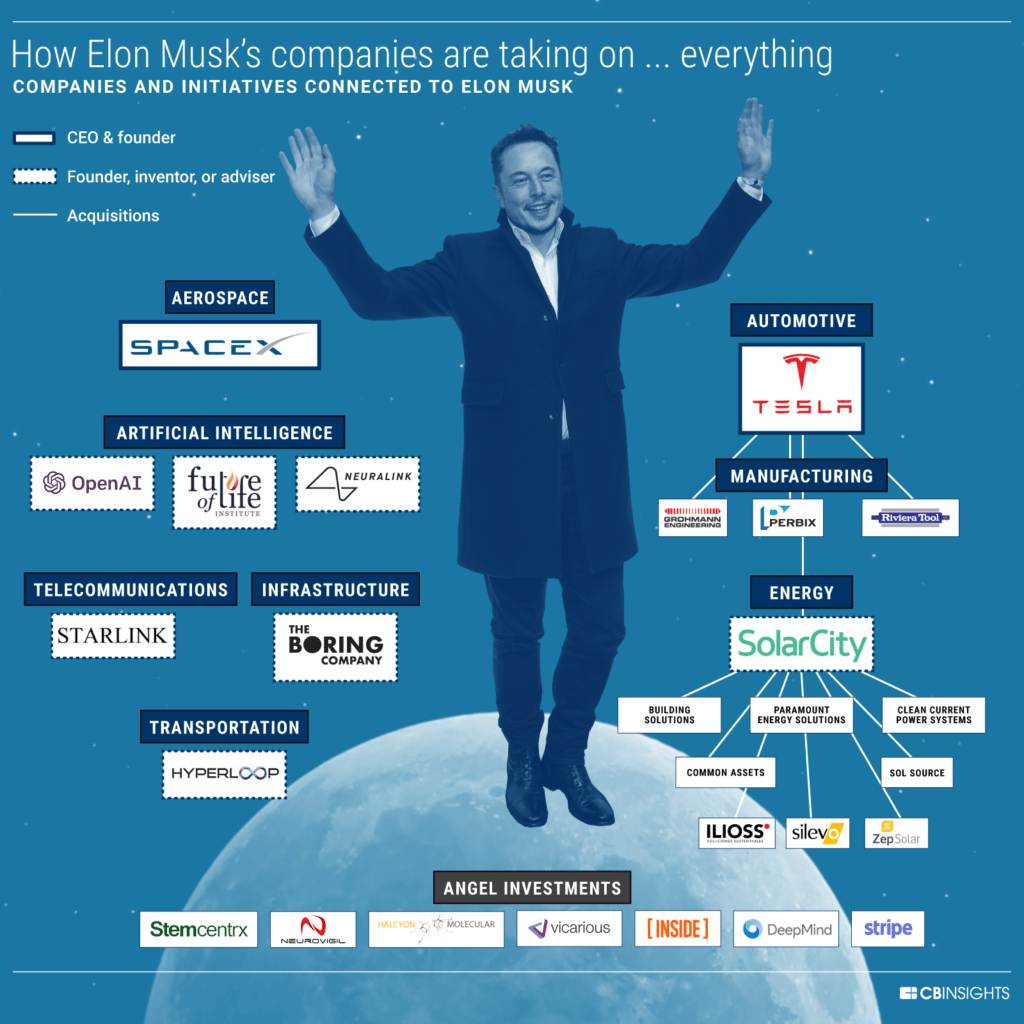The Crucial Role Of Middle Managers: Bridging The Gap Between Leadership And Employees

Table of Contents
Effective Communication: The Cornerstone of Middle Management
Effective communication is the bedrock upon which successful middle management is built. It's their responsibility to ensure seamless information flow, translating high-level strategies into actionable plans and fostering open dialogue between leadership and employees.
Relaying Strategic Goals and Initiatives
Middle managers are tasked with transforming abstract strategic goals into concrete, achievable tasks for their teams. This requires clear, concise, and consistent communication.
- Regular team meetings: Providing updates, soliciting feedback, and clarifying expectations.
- Clear written instructions: Ensuring everyone understands their roles and responsibilities.
- Open-door policies: Fostering a culture of open communication and accessibility.
- Utilizing visual aids and presentations: Simplifying complex information and improving understanding.
Effective strategic communication ensures everyone is working towards the same objectives, enhancing overall team productivity and goal attainment. This involves strong skills in task delegation and goal setting, leading to improved performance management across the organization.
Gathering and Providing Employee Feedback
Middle managers serve as a vital conduit for upward communication, conveying employee feedback and concerns to senior leadership. This provides invaluable insights into team morale, challenges faced, and potential areas for improvement.
- Anonymous employee surveys: Gathering feedback on various aspects of the workplace.
- Regular one-on-one meetings: Providing a platform for individual feedback and concerns.
- Focus groups: Facilitating group discussions to identify common themes and issues.
- Suggestion boxes: Providing an easily accessible platform for feedback.
This upward communication empowers employees, improves employee voice, and ensures that leadership decisions are informed and responsive to the needs of the workforce. Effective performance review processes are crucial for incorporating this feedback and driving improvements.
Conflict Resolution and Team Building
Middle managers are often the first point of contact for resolving conflicts within their teams. Their ability to foster a positive and collaborative environment significantly impacts team cohesion and morale.
- Mediation and conflict resolution techniques: Helping team members find mutually acceptable solutions.
- Team-building activities: Strengthening relationships and improving communication.
- Mentoring strategies: Guiding and supporting team members to overcome challenges.
- Promoting open and respectful communication: Establishing clear guidelines for professional interactions.
Successfully navigating conflicts and promoting team building enhances employee morale, leading to a more productive and engaged workforce. This directly contributes to improved performance and reduced employee turnover.
Empowering Teams and Driving Performance
Empowering teams is a key function of effective middle management. It's about fostering a sense of ownership, autonomy, and shared responsibility among team members.
Delegation and Empowerment
Effective delegation is crucial for boosting team productivity and engagement. Middle managers should delegate tasks based on individual skills and strengths, providing the necessary resources and support.
- Clearly defined roles and responsibilities: Ensuring everyone understands their contributions.
- Providing autonomy and decision-making power: Empowering team members to take initiative.
- Offering regular feedback and guidance: Providing support and ensuring alignment with goals.
- Recognizing and rewarding achievements: Boosting morale and motivation.
This approach fosters employee empowerment, resulting in increased team productivity and a sense of ownership over projects. Improved work autonomy also contributes to greater job satisfaction.
Performance Management and Development
Middle managers play a vital role in monitoring team performance, providing regular feedback, and identifying opportunities for growth and development.
- Regular performance reviews: Assessing progress, providing feedback, and setting future goals.
- Providing training and development opportunities: Equipping employees with the skills they need to succeed.
- Creating career progression plans: Supporting employee growth and advancement within the organization.
- Identifying and nurturing high-potential employees: Investing in future leadership.
Effective performance management and talent management are crucial for retaining valuable employees and cultivating a high-performing team. These processes directly contribute to improved employee development and career growth opportunities.
Mentorship and Coaching
Middle managers act as mentors and coaches, guiding and supporting their team members’ professional development.
- Providing guidance and advice: Sharing knowledge and experience to help employees grow.
- Offering constructive feedback and encouragement: Supporting employees in overcoming challenges.
- Identifying high-potential employees and supporting their career advancement: Investing in future talent.
- Facilitating networking opportunities: Connecting employees with other professionals in the organization.
Mentorship and coaching contribute significantly to employee retention and fostering a culture of continuous learning and development. This investment in talent development improves overall team performance.
Navigating the Challenges of Middle Management
The role of middle management comes with its own set of challenges. Successfully navigating these complexities requires strong interpersonal skills, effective communication, and excellent time management.
Balancing Competing Demands
Middle managers often face competing demands from senior leadership and their teams. Balancing these priorities requires strong organizational and time management skills.
- Prioritization techniques: Focusing on the most critical tasks and delegating where appropriate.
- Time management strategies: Effectively allocating time to various responsibilities.
- Stress management techniques: Developing healthy coping mechanisms to handle pressure.
- Seeking support from senior management: Addressing resource constraints and seeking clarity.
Effective prioritization and stress management are key to maintaining a healthy work-life balance and preventing burnout.
Managing Up and Down
Effective middle managers build strong relationships with both senior leadership and their team members. This requires excellent communication and interpersonal skills.
- Building trust and rapport: Creating open and honest relationships based on mutual respect.
- Providing constructive feedback: Communicating clearly and honestly, both upwards and downwards.
- Navigating organizational politics: Understanding the dynamics of the organization and adapting accordingly.
- Effectively communicating both strategic goals and employee concerns: Acting as a liaison between different levels of the organization.
Strong interpersonal skills and effective communication are essential for successfully navigating the complexities of organizational politics and building strong relationships across different levels of the organization.
Conclusion
Middle managers are indispensable to organizational success. Their ability to effectively communicate strategic goals, empower their teams, and navigate organizational complexities significantly impacts employee engagement, productivity, and overall performance. By strengthening your middle management through investment in training, development, and empowerment, you can significantly improve communication between leadership and employees and enhance organizational success through effective middle management. Invest in your middle managers – they are the key to unlocking your organization's full potential.

Featured Posts
-
 Will Ahmed Hassanein Rewrite Nfl History For Egypt
Apr 26, 2025
Will Ahmed Hassanein Rewrite Nfl History For Egypt
Apr 26, 2025 -
 Blue Origin Postpones Launch Subsystem Malfunction Identified
Apr 26, 2025
Blue Origin Postpones Launch Subsystem Malfunction Identified
Apr 26, 2025 -
 Subystem Problem Delays Blue Origin Rocket Launch
Apr 26, 2025
Subystem Problem Delays Blue Origin Rocket Launch
Apr 26, 2025 -
 Hacker Accused Of Millions In Office365 Executive Account Breaches
Apr 26, 2025
Hacker Accused Of Millions In Office365 Executive Account Breaches
Apr 26, 2025 -
 A Side Hustle Access To Elon Musks Private Companies
Apr 26, 2025
A Side Hustle Access To Elon Musks Private Companies
Apr 26, 2025
Latest Posts
-
 Pegula Defeats Collins To Win Charleston Title
Apr 27, 2025
Pegula Defeats Collins To Win Charleston Title
Apr 27, 2025 -
 Charleston Tennis Pegula Beats Collins In Thrilling Match
Apr 27, 2025
Charleston Tennis Pegula Beats Collins In Thrilling Match
Apr 27, 2025 -
 Pegula Triumphs Charleston Open Update
Apr 27, 2025
Pegula Triumphs Charleston Open Update
Apr 27, 2025 -
 Charleston Tennis Pegula Claims Victory Against Collins
Apr 27, 2025
Charleston Tennis Pegula Claims Victory Against Collins
Apr 27, 2025 -
 Top Seed Pegula Triumphs Over Collins In Charleston Final
Apr 27, 2025
Top Seed Pegula Triumphs Over Collins In Charleston Final
Apr 27, 2025
